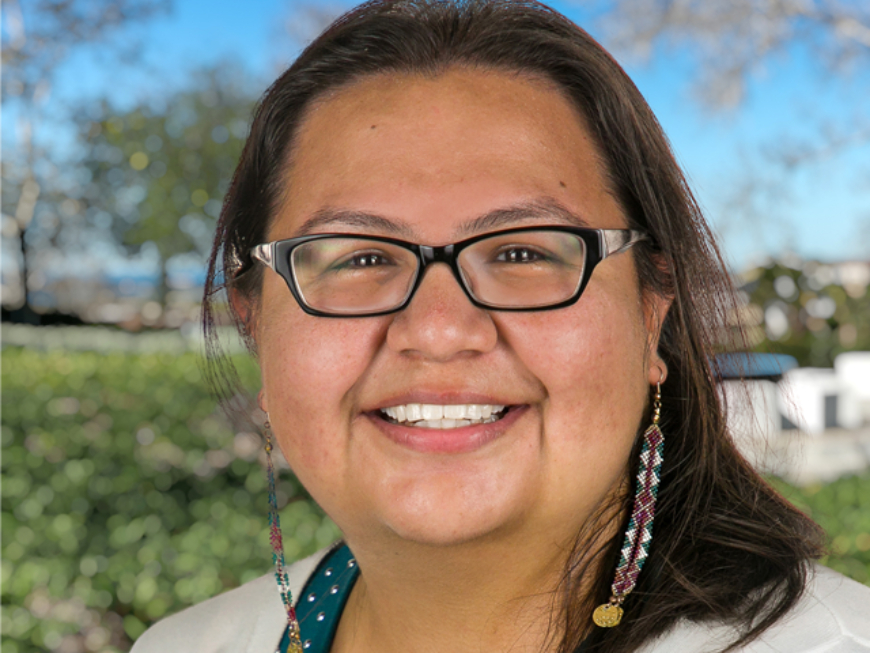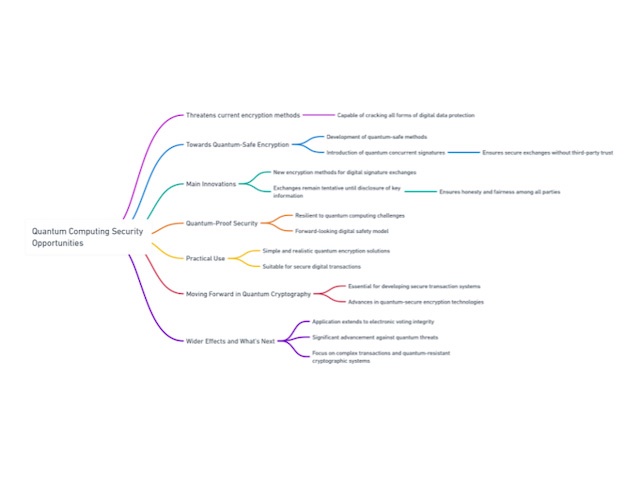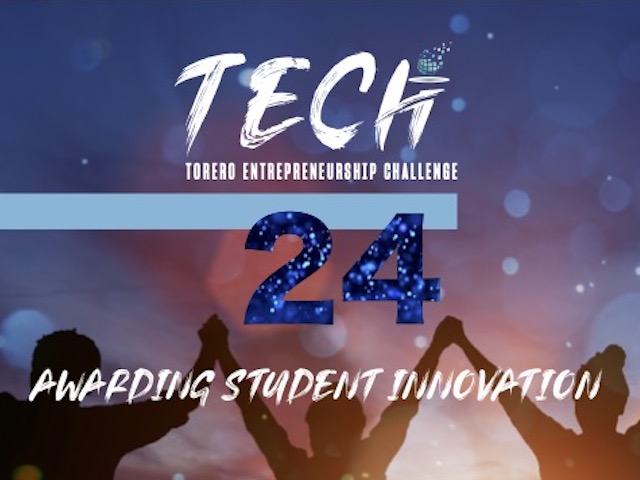Strength in Numbers: Finding and Building Community at USD
Learn how Assistant Professor of Ethnic Studies Angel Hinzo, PhD, is making an impact through community building at USD.
 Angel M. Hinzo (Ho-Chunk, enrolled Winnebago Tribe of Nebraska) is an assistant professor of ethnic studies whose research incorporates feminist and Indigenous methodologies in analyzing primary and secondary sources.
Angel M. Hinzo (Ho-Chunk, enrolled Winnebago Tribe of Nebraska) is an assistant professor of ethnic studies whose research incorporates feminist and Indigenous methodologies in analyzing primary and secondary sources.Assistant Professor Angel Hinzo's first memory of USD spans back to her time attending high school in North County, San Diego, and later at UC San Diego for her undergraduate degree when she visited campus. When she returned to USD several years later for her role as a visiting professor, she felt apprehensive.
Her mixed feelings stemmed from the mission style of campus buildings — albeit beautiful, they hold a long, and sometimes troubling history. “I was unsettled to be teaching Native American history in this place knowing the tensions and violence surrounding California Indian history...it was something I worked through,” she says. “I'm trained in Native studies, where it's important to teach from the place you're at — it's very much grounded in place. [At USD] it's grounded in California Indian history.”
Over time, the apprehension Hinzo felt was eased by real, important work she saw being done across campus. For example, when the university renamed Serra Hall to Saints Tekakwitha and Serra Hall in acknowledgment of the indgenous peoples, namely the Kumeyaay Nation, who were settled in San Diego before Catholic missionaries.
When the Department of Ethnic Studies began their search for an assistant professor, Hinzo applied believing in the work of the department and university to build connections with their local communities.
“I saw them working to build communities and make these connections — they do have good connections with the local Kumeyaay community. That made me interested in staying,” she says.
Growing community at USD
After accepting the role, Hinzo became a part of the “small but mighty” ethnic studies team. She's found motivation and inspiration from her colleagues, like Alberto López Pulido, who leads The Turning Wheel Project.
“There's a lot of institutional support for the department, a lot of desire to get input from the department, and interest in wanting to support the work that's being done,” she says, noting how encouraging it's been to see ideas come to life in the San Diego community. “To be able to see his project and his work getting support is important.”
Hinzo has begun building community in her own way — right in her classrooms. She invites local community members, like Stan and Martha Rodriguez from Kumeyaay Community College, to her classes to speak with students, a practice that has now become a staple of her courses and a valuable learning experience for students.
Community through collaboration
Her research in Native American studies “fluctuates between being historical and archival to ethnographic and focused on the lived experiences of today,” which inherently informs her teaching. She finds that students are often surprised by the discursive nature of how they engage with history in her classes, especially students who are accustomed to learning history in chronological order.
“Some students expect us to have this 1400s-1800s history, but when we engage with the history, we have to understand why these issues matter today to Native communities — like through the history of federal policies — we're living today in the impact of these policies,” she says.
Teaching remotely during the pandemic was a challenge she overcame by expanding her idea of community and bringing in colleagues from across the country to speak with students. “To teach a subject I'm so personally invested in and connected to...it's very special,” she shares.
Thanks to introductions to local organizations and support from her colleagues, like May Fu, Hinzo's research has also become more collaborative, including co-authored articles and book chapters. “We're an interdisciplinary community. We support each other in doing this work,” Hinzo says.
Her best advice for new faculty looking to find balance in their teaching, research and service work? “Protect your time. Ask yourself, ‘Is this going to benefit my research or teaching?’ It's OK to say no and step back, or that you're interested but can't be a part of it at this time.”
Most importantly, though, Hinzo says not to get caught up in “finding a balance.”
“If one part of your work requires more than another, that’s OK—just recognize that it's OK to not be in balance.”
— Victoria Tice
----
Visit Diversity, Equity and Inclusion to learn more about the College of Arts and Sciences’ commitment to our community.
Contact:
CAS Marketing
casmarketing@sandiego.edu
(619) 260-4545



